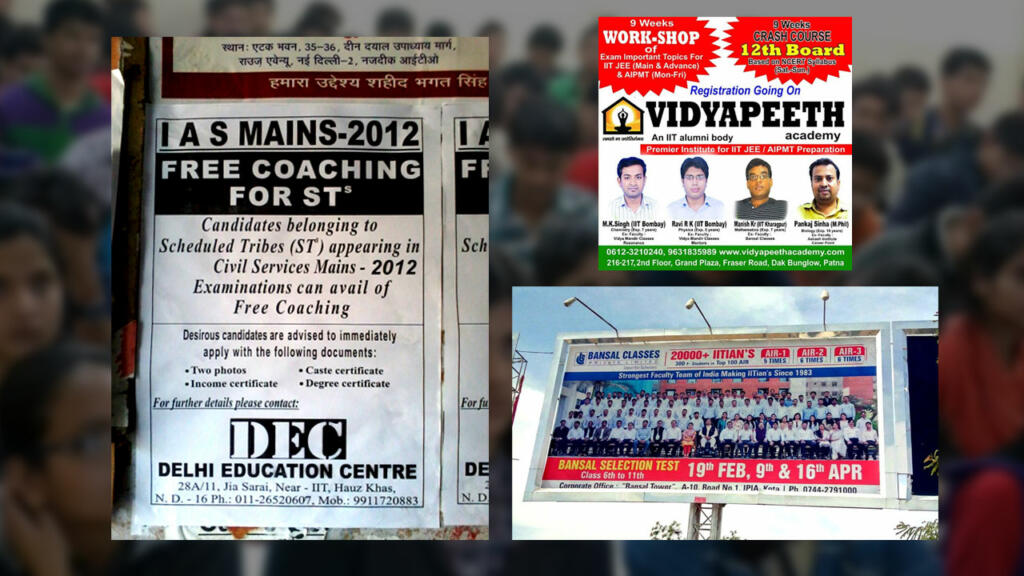Should the education sector be taxed or exempted? This contentious question got answered only last year. In a 2020 ruling by the Maharashtra Authority for Advance Rulings (AAR), it was held that coaching centres are not exempt from the Goods and Services Tax and that they will continue to pay GST @18%.
Why coaching centres are bound to pay GST?
Coaching centres are technically not at par with the exempted educational institutions. The coaching centres render only a commercial service without offering an acknowledged diploma/ degree. They also do not follow a formal academic curriculum. Therefore, they are not exempted from GST.
The reason behind not exempting coaching centres from GST is more of a technical viewpoint. Let’s analyse the practicality behind it- coaching centres have become a full-blown industry with cutthroat competition at all levels in the education sector right from schooling to university entrance examinations, and government jobs. Since coaching is no longer a noble pursuit that it used to be, there is no need to exempt it from taxation.
Why coaching institutions have mushroomed?
You probably send your children to a high-end school. You spend thousands or probably even lakhs of rupees on school fees, books, co-curricular activities, and so on. So, why do you have to pay for your kid’s expensive coaching?
Well, you can put the blame on a faulty education system. The Britishers created a terrible education system in the country that catered to the needs of the colonial power. The Britishers educated the people of India to serve their own interests. The education wasn’t really market-oriented or skills-based. The only aim of the British was to recruit clerks to aid them in administration.
Even after independence, there weren’t many changes in the education system. Ornamental changes in curriculum didn’t make the Indian schooling and education system a market-oriented or skills-oriented service. And the focus on rot learning or mugging up created the need to bring in-home tutors or small-scale tuition centres for not-so-bright kids in the 1950s and 1960s itself.
Over time, coaching transformed from exceptional luxury to a general necessity and now you will rarely find a child or teenager who is not taking coaching classes.
How has the craze around government services transformed coaching into an industry?
Coaching services have actually become an industry today. And it all started in the late 1980s, by which time the socialist ideology had reached its zenith. Due to mushrooming Public Sector Undertakings (PSUs), the nationalisation of banks, and the creation of a colossal bureaucracy, the number of government jobs on offer went up drastically.
Due to a small organised private sector and lack of incentive for entrepreneurship, a government job was seen as a ticket to prosperity. This is why a plethora of coaching centres came up that promised a great career in public sector banks, government departments, and other such sectors. Ultimately, the hype around the civil services built up rapidly and this is when all metropolitan cities witnessed the rise of coaching centres for cracking the UPSC Civil Services Examination (CSE).
Even today, several exams are conducted every year for recruitment into different government departments and there is scope for coaching lakhs of students for this purpose.
True, the country moved into economic liberalisation and with the coming up of the IT industry, a government job isn’t as lucrative in the 2020s as it used to be in the 1990s. However, this has led to a parallel coaching industry, which now trains teenagers to get into the IITs, and another set of coaching institutes that trains graduates to get into the IIMs.
Presently, the coaching industry has become somewhat stagnant. Entrepreneurship, innovation, and other sources for making money are rising. Therefore, not every student wants to end up in an IIT or bag a government job. However, even today, the coaching industry thrives because an average child born in India goes into at least two or three different modes of coaching- firstly, tuition centres in school days, then coaching for university entrance examinations, and finally, coaching to get a government job.
Moreover, since coaching centres are result-oriented and not skills-oriented, a student needs repeated coaching classes in order to achieve every single academic goal. Therefore, coaching centres aren’t really centres of education, rather they are business centres that are taxed appropriately.
